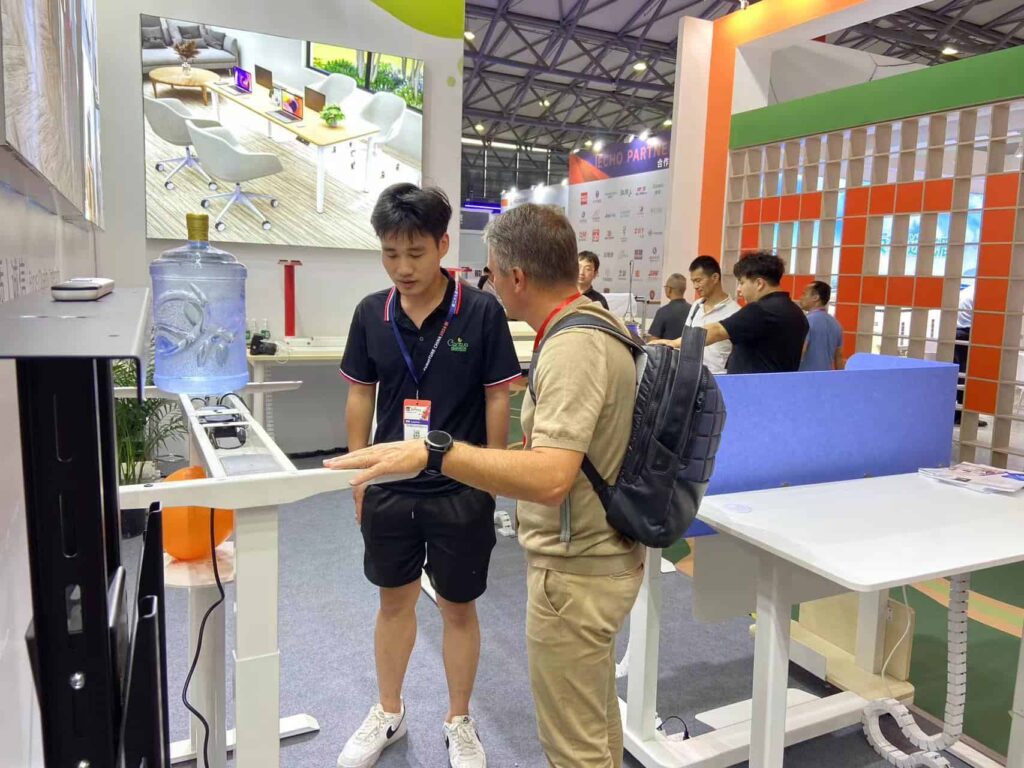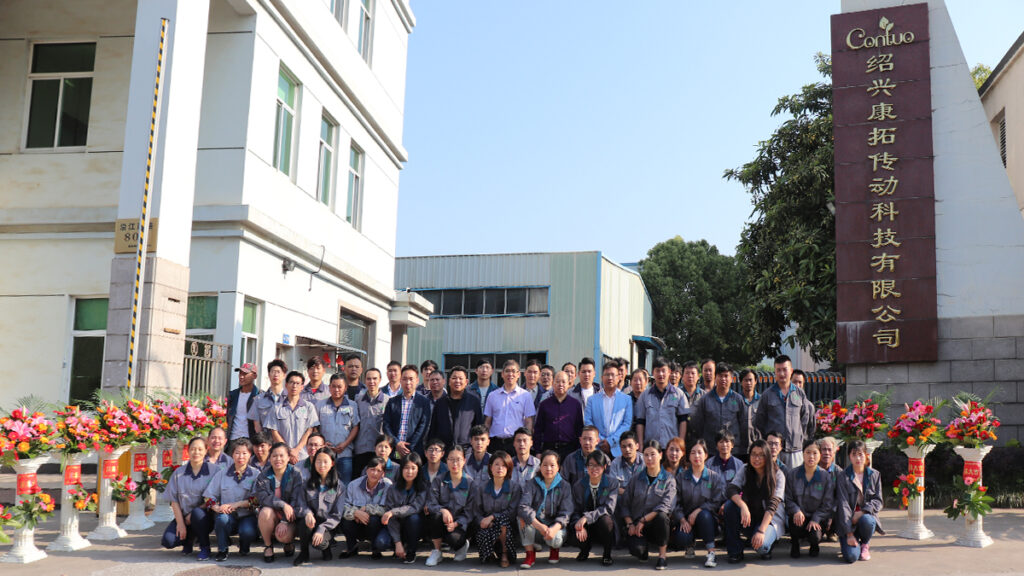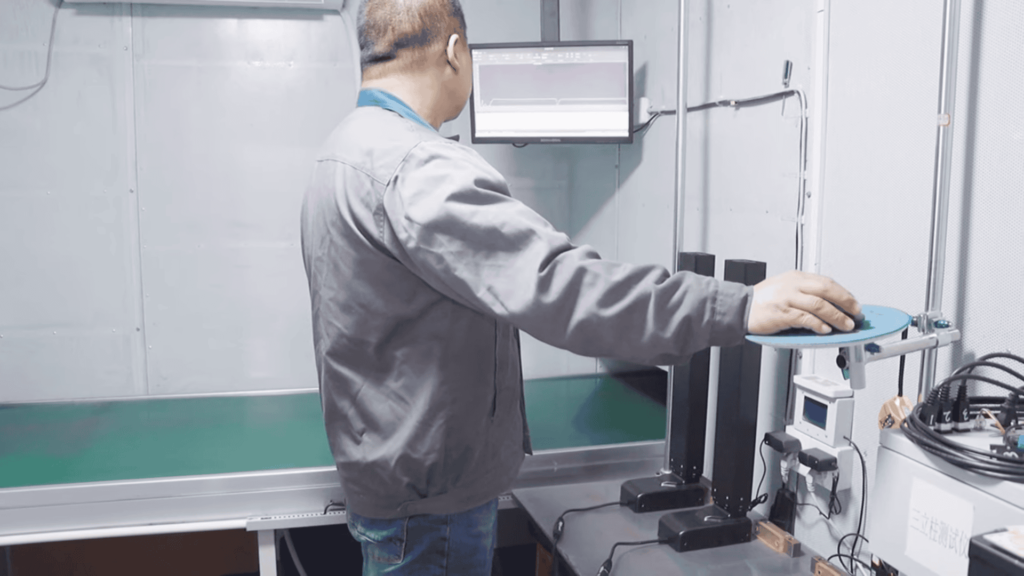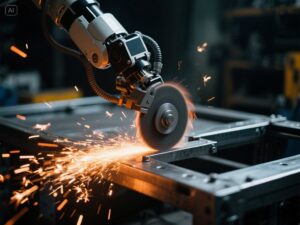Introduction

Smart desks now anchor office ecosystems, with 68% of Chinese tech firms listing ergonomic workstations as top employee demands (2024 Smart Office Trends Report). But here’s the rub: Your supplier choice determines whether you’re delivering hospital-grade equipment or glorified doorstops.
Take Autonomous’s meltdown-proof SmartDesk Core—its military-grade steel legs survived a viral stress test where influencers stacked 15 watermelons. Contrast that with a Hangzhou startup’s nightmare: $120K worth of desks recalled after veneers peeled like sunburnt skin in humid summers.
The stakes? Higher than a standing desk at max height. Choose right, and you’re stocking tools that boost productivity metrics and ESG scores. Choose wrong, and you’re babysitting 1-star reviews about stripped bolts and ghosted warranty claims.
The Hidden Power of Factory Partnerships

The Hidden Power of Factory Partnerships
Picture this: A Los Angeles-based office furniture startup nearly collapsed in 2023 when a middleman delivered desks with warped steel frames. Their salvation? Cutting out intermediaries to partner directly with BIFMA-certified factories like Contuo. This shift isn’t just about avoiding sketchy suppliers—it rewires how modern office brands operate.
Factories with integrated IoT quality checks now spot microscopic welding flaws during assembly lines, something traditional distributors might overlook until customer complaints erupt. Kangtuo uses automatic welding machines to weld lift table columns, Our 48-hour inspection protocol combines laser measurements with old-school craftsmen tapping joints for hollow sounds—a hybrid approach catching 99% of defects before shipping.

Costs nosedive when you eliminate markup layers. One Guangzhou Amazon e-commerce brand slashed procurement expenses by 37% after adopting factory-direct contracts with Contuo, using the savings to fund ergonomic R&D has enhanced its core competitiveness, making it much more difficult for latecomers to catch up. But the real game-changer? Agile restocking. During 2024’s Q4 supply chain crunch, brands with bonded warehouse agreements pulled inventory from factory reserves while competitors waited months for overseas shipments.
Ergonomic Tech as Profit Catalysts
 Ergonomic Tech as Profit Catalysts
Ergonomic Tech as Profit Catalysts
“Our standing desks reduced neck strain claims by 63% last year,” reports the HR director of a Shanghai tech unicorn using FlexiSpot’s AI-posture models. This isn’t wellness theater—it’s revenue math. Employees at adjustable workstations log 2.1 extra productive hours weekly, translating to $18K annual value per knowledge worker.
Smart desks now moonlight as talent magnets. A Shenzhen gaming studio lured three Unity developers by showcasing workstations with built-in hydration reminders and microclimate controls—features that trended on Xiaohongshu as “boss-level pampering”. Meanwhile, Maidesite’s L-shaped models with whisper-quiet motors (<25dB) dominate WeWork China’s premium offices, outclassing bulkier competitors.
The sustainability angle sparks investor interest. Autonomous’s bamboo-composite desks reduced carbon footprints by 41% compared to traditional MDF, aligning with Tencent’s 2030 net-zero supplier mandates. Early adopters gain dual advantages: eco-conscious B2B contracts and Gen Z employee retention rates 22% above industry averages.
When Partnerships Spark Market Dominance

Contuo didn’t just sell desks—they hacked corporate procurement culture. Their factory-to-boardroom model slashed lead times from 60 days to 14, a feat that landed them contracts with Alibaba’s Hangzhou campus during its 2024 expansion frenzy. Secret sauce? Co-design labs where engineers tweak motor torque specs with clients. One Shenzhen gaming studio customized RGB-lit desks synced to employees’ heart rate monitors—a viral gimmick that boosted recruitment by 40% on Boss Zhipin.
Maidesite’s playbook reads like a supply chain thriller. When COVID variants choked Dongguan ports in 2023, their bonded warehouses in LA and Rotterdam became lifelines. Clients like WeWork China paid 15% premiums for guaranteed 72-hour restocking—a gamble that paid off when rival suppliers faced six-month delays. Their secret weapon? Production lines that switch from office desks to hospital bedside tables in 48 hours, a flexibility born from pandemic-era ventilator collaborations.
Three lessons emerge from these trailblazers:
1.Quality theater beats checklists–Autonomous streams factory floor footage to corporate buyers, letting them watch weld sparks fly in real time.
2.Inventory is the new IP–Maidesite’s “just-in-case” stockpiles of German linear motors now yield 22% margins as competitors scramble.
3.Customization ≠ complexity–One Beijing tech firm’s “standing desk + lactation pod” hybrid required just three engineering tweaks, thanks to modular designs.
Conclusion
Let’s cut through the procurement jargon: Your smart desk supplier isn’t a vendor—they’re your business’s orthopedic surgeon. Every shaky leg or noisy motor directly impacts client retention curves and HR headache counts.
The numbers don’t lie. Brands investing in BIFMA-certified partners see 23% faster order fulfillment and 40% fewer customer service tickets. As Tencent’s procurement lead joked, “Our Autonomous rep sleeps with a soldering iron under their pillow—that’s our kind of insomnia.”
Here’s the kicker: The 2025 office won’t care about your ChatGPT prompts if employees are hunched over warped desktops. Future-proof your catalog with suppliers who treat carbon fiber like couture fabric and supply chains like neural networks.
Ready to upgrade? DM Maidesite’s “desk therapists” for a free ergonomic audit, or crash the Canton Fair’s Smart Office Zone this October—where the real magic happens between espresso shots and spec sheet haggling. Your standing desk game shouldn’t just rise—it should levitate.


